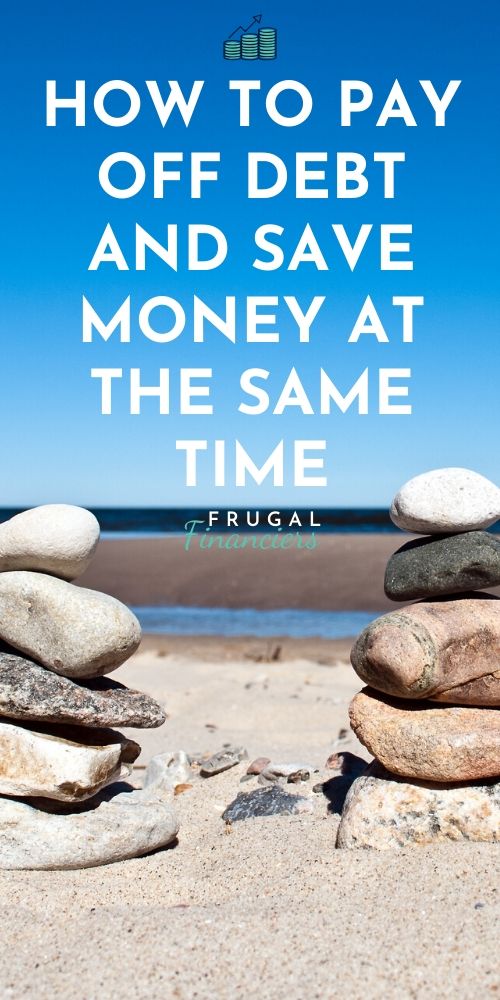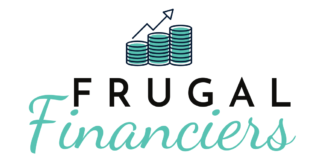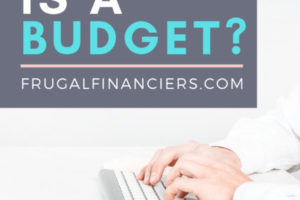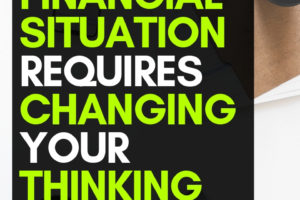Learning how to pay off debt and save money at the same time can be tricky.
We did while paying off over $100,000 of debt in a year but only after really thinking through it and planning it out.
We wanted to take advantage of employer 401(k) matching as well as contribution limits for our Roth IRAs.
There are few things you can do to make sure you’re paying off debt and saving money at the same time.
First you need to know how much money you have to pay off debt or save.
Ask yourself the following questions.
How Much Extra Money Do You Have?
You have your income, your expenses, and then what’s left.
That what’s left is either for paying off debt or saving.
You should go through and look at your income and spending for the last three months.
We recommend that you at least split up your spending into essential and nonessential expenses.
Once you’ve done that, you’ll know how much money you have leftover for paying off debt or saving and investing.
You should create a budget with what you expect to earn and spend next quarter.
After you’ve decided how much you want to put towards paying off of debt and how much you want to put towards saving, you can add those amounts to your budget.
At that point you’ll know where all your money is expected to go and you can keep track of it.
Are Your Spending Habits Leaving You with Little Extra Money?
In addition to knowing how much extra money you have for saving and paying off debt, you can take a look at how you’re spending money.
While it can take some time to make more money, you can spend less money right now.
If you think that you need to spend less money, consider setting budget spending goals to reduce your spending.
You can also do a no-spend challenge. These are great for resetting your habits so that you not only spend less during the challenge but afterward too.
How Much Do You Have to Pay On Your Debt?
After how much extra money you have, one of the biggest factors in paying off debt and saving at the same time is monthly minimum required debt payments.
All of your loans and credit card balances have minimum payments that you have to pay before you can think about saving.
If you have to pay the minimum payments with all of your extra money, then it is going to be difficult to save any money.
Do You Have the Opportunity for Free Money?
Some employers offer 401(k) matching which is a great way to save more money.
You definitely want to find out if your employer will match your contributions to your 401(k) because it could be an easy way to save money while paying off debt.
Employers may also offer free money if you have a Health Savings Account (HSA).
We received $800 in HSA contributions just by doing simple activities and tasks.
How to Pay Off Debt and Save Money
Now that you’ve answered the previous questions you can figure out how you’re going paying off debt and save money too.
Reduce Your Nonessential Expenses
The easiest way to save money and pay off debt at the same time is to reduce your expenses.
Since, you can’t really reduce essential expenses, you have to tackle the nonessential expenses.
Try to look at every time you spend money as a trade-off.
You can either buy that thing you want, pay off debt, or save. But, only one.
It’s a balancing act between spending on the stuff you want like new clothes or a vacation, paying off debt, and saving for the future.
Also, take advantage of the budget and set spending goals. You can even put your expenses into categories and set goals for each category.
Remember it like this:
You have how much money you make.
Then you have how much you have to spend on essential expenses.
After that, you have three choices.
Spending. Paying off debt. Saving.
If you can’t reduce your expenses anymore we get it.
Money isn’t just about saving and paying off debt but enjoying the money you’ve earned.
Reduce as much as you can and then look for other ways to pay off debt and save.
Check out our post on apps and websites that can save you money and reduce how much you spend through cashback.
Take Advantage of Free Money
If your employer offers opportunities to get free money, you should do it.
Go talk to the people in human resources and find out if there are any ways that you can save more money without actually saving more money.
You’ll be doing this because you’re saving the same amount but now your employer is also helping save money by contributing too.
Earn More Money
It takes longer but you can also pay off debt and save money by earning more money.
Maybe that’s finding additional income opportunities or maybe that’s switching jobs.
The only thing you have to be sure of is that you value your time.
No filing out surveys all day to make $10.
Look for opportunities that will at least pay you as much as you make per hour at work.
Otherwise, you’re wasting your most valuable asset, time.
Check out our post on almost-passive income ideas or activities that don’t require a ton of time but can earn you extra income.
Create a Plan with Debt Payoff and Savings Expectations
One thing you should definitely do is create a plan with how much you expect to save and how much debt you expect to pay off.
This will help you to make sure that you’re both saving the amount of money you want and paying off the amount of debt you want to pay off.
Review and update the plan so that you can keep track of your debt payoff and saving.
We like to put these amounts for our budget and also have a financial plan for how we expect to pay off debt and save over the longer-term.
Final Thoughts
Paying off debt and saving at the same time can be tough.
It definitely feels like you should be doing both and as much as you can but that doesn’t always happen.
The best place to start is your spending.
The less you spend the more you have to put towards paying off debt or saving.
Once you have that money you can decide how much you should pay off and how much you should save and invest.





Leave a Reply
Your email is safe with us.
You must be logged in to post a comment.